The NCCE Kwaebibirem Municipal, Eastern region, led Civic Education Club (CEC) members from Islamic JHS Kade and Al-Amin JHS Kade on an educational trip to the Ghana National Fire Service located at Kade.
Students of the Islamic JHS CEC were accompanied by their Patron, Mrs. Rosina Diaba, and those from Al-Amin JHS CEC, Mr. Gilbert Yeboah, and Ms Faustina Yeboah.
At Ghana National Fire Service, the team was received by the Public Relations Officer (P.R.O), Mr David Ohene, Assistant Divisional Officer II Ofori Emmanuel (Head of Rural fires), and 8 other fire officers.
Mr. David Ohene facilitated the education by first giving a brief history of the service which dates back to 1963 with the mandate of saving lives and property but was modified in 1997 to manage undesired fires.
He spoke on the five classifications of fire namely:
- Class A (Solid) fire is when the fire they are to put off involves the burning of humans, dresses, wood, etc.
- Class B (Liquid) Fire involving petro, turpentine, diesel, etc.
- Class C (Gas) Fire involving gas or air that can explode.
- Class D (Metallic) Fire involving metals.
- Class E (Electrical) Fire involving electrical wires, electrical gadgets, etc.
He identified common causes of fire outbreaks such as electrical faults caused by overloading extension boards with gadgets, old wiring, and gas leakages.
He also cautioned participants against certain practices such as: using phones by gas cookers; keeping filled gas cylinders and stoves in one location; overfilling gas cylinders; using rubber tubes without lining instead of using wire meshed tubes as the connection tube from the gas cylinder to the burner. Others were, wearing long-sleeved clothes, veils, and long scarves in the kitchen when working around fires.
He taught participants the proper way of transporting filled cylinders to avoid explosions. He stated that the audience should wait for the gas to settle before using a filled gas cylinder and that gas cylinders should be kept outside in an airy place and not in an enclosed room.
The P.R.O explained that they are to move within a minute of receiving calls of a fire outbreak and that what usually causes delay is the bad nature of roads to the target location, the distance to be covered, and limitations with available assets in cases of multiple fires from different locations as there is only one fire tender available for the entire Kwaebibirem Municipal. He also indicated that there are some district offices without fire tenders, where the officers mainly only educate the public on fire prevention.
After the session, the team was given a tour of the premises; the fire tender (vehicles) which has the capacity to contain 2000 gallons of water equivalent to 9000 liters is always filled and ready to move at any given time.
Finally, there was a demonstration of how the firefighters respond to calls of fire outbreaks.
The Municipal Director, Mrs. Gertrude Adwoa Defoe, Joshua Asiedu (Civic Education Officer), Hillary Ohene (Assistant Civic Education Officer), and Godfred Annobel (Civic Field Officer) from the National Commission for Civic Education were the NCCE team present.
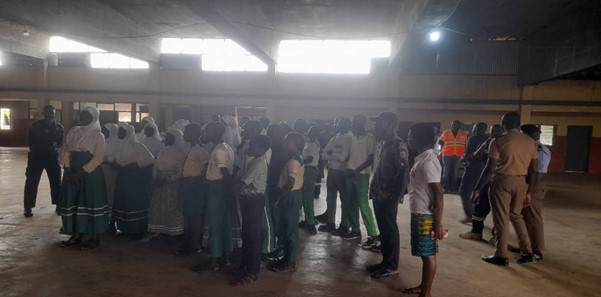
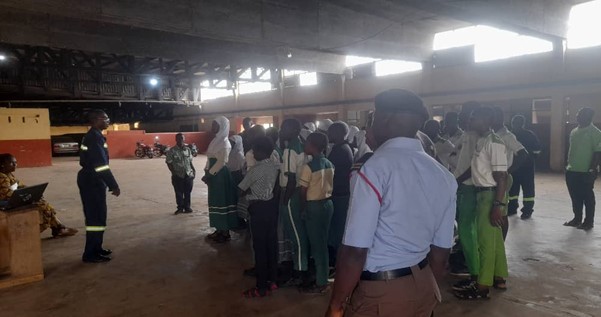
Mr David Ohene (P.R.O) and some officers educating the students of Al-Amin JHS, Islamic School and staff from NCCE on the genesis and mandate of the Ghana National Fire Service
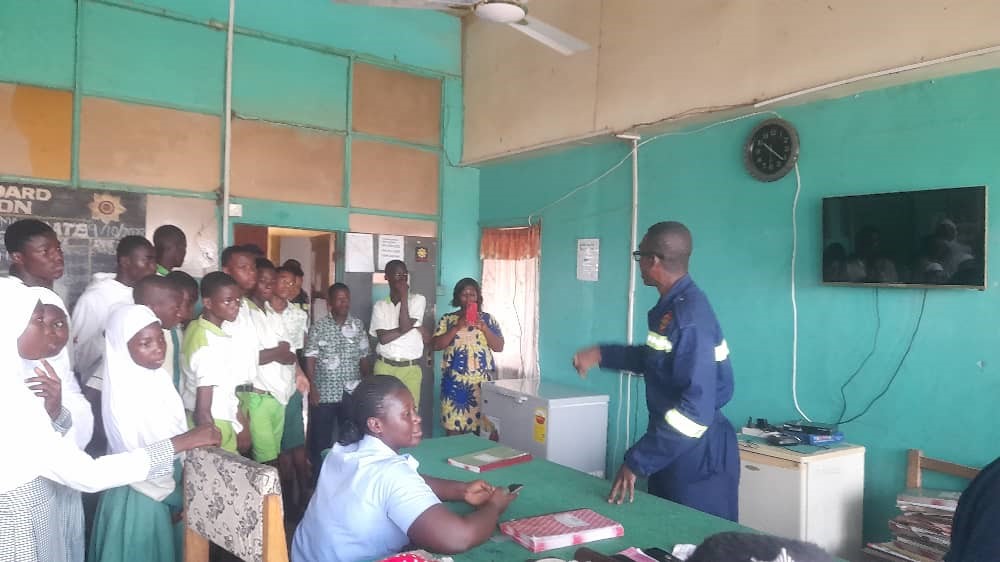
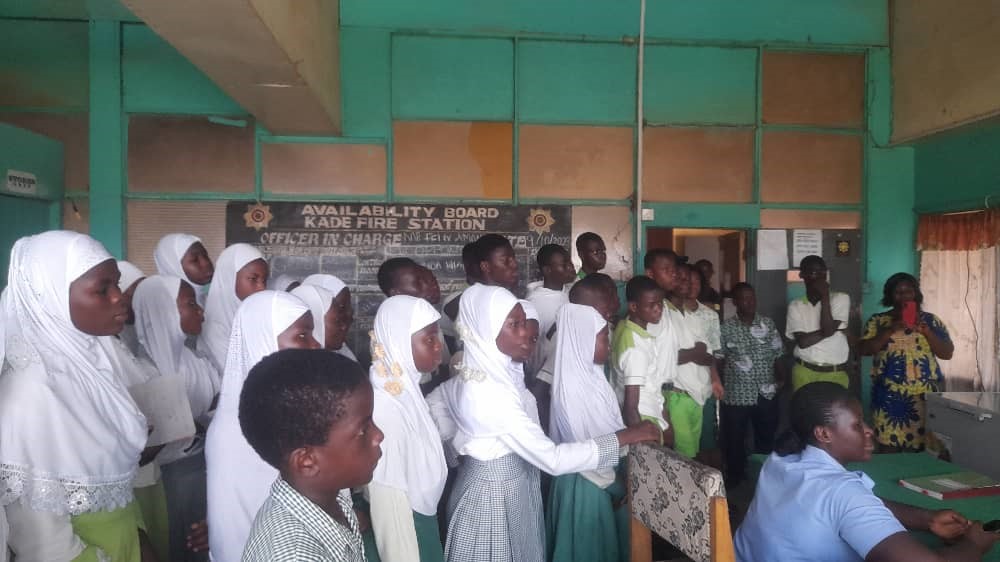
Mr. David Ohene giving participants a tour of the call dispatch centre where they receive calls of an outbreak
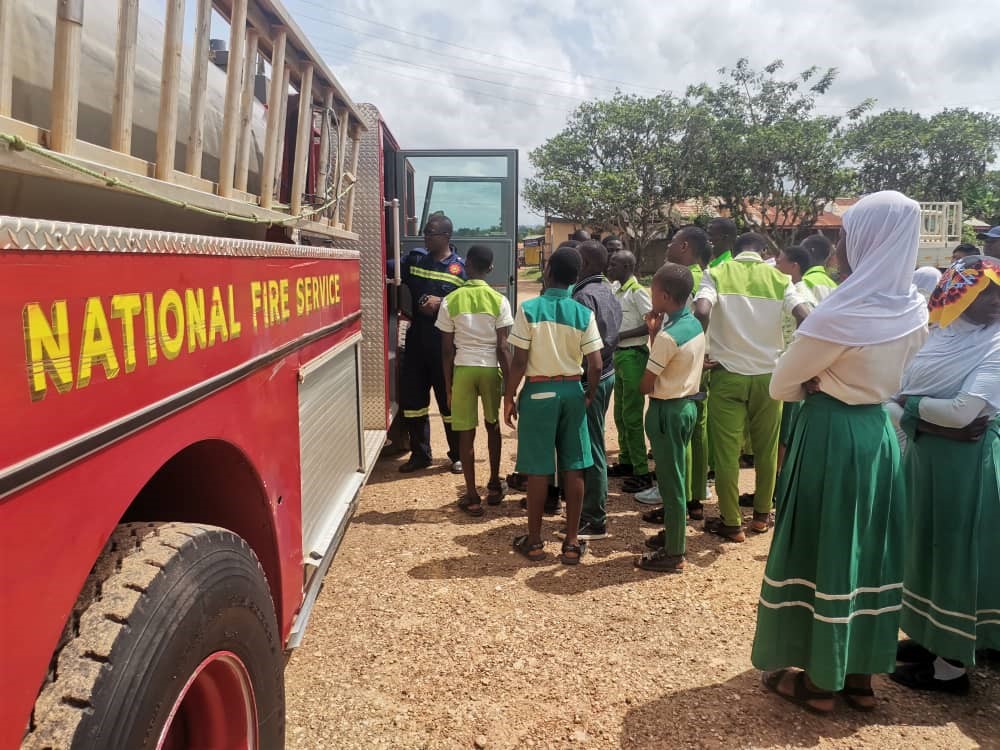
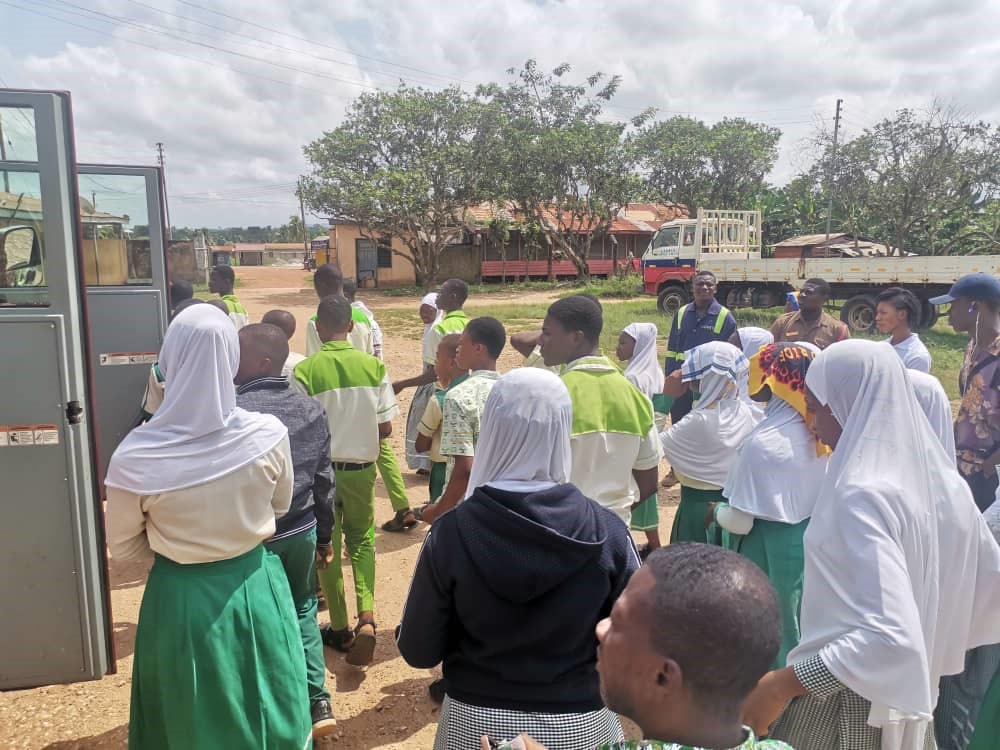
Mr David teaching students how to operate a fire tender to calm and quench a fire
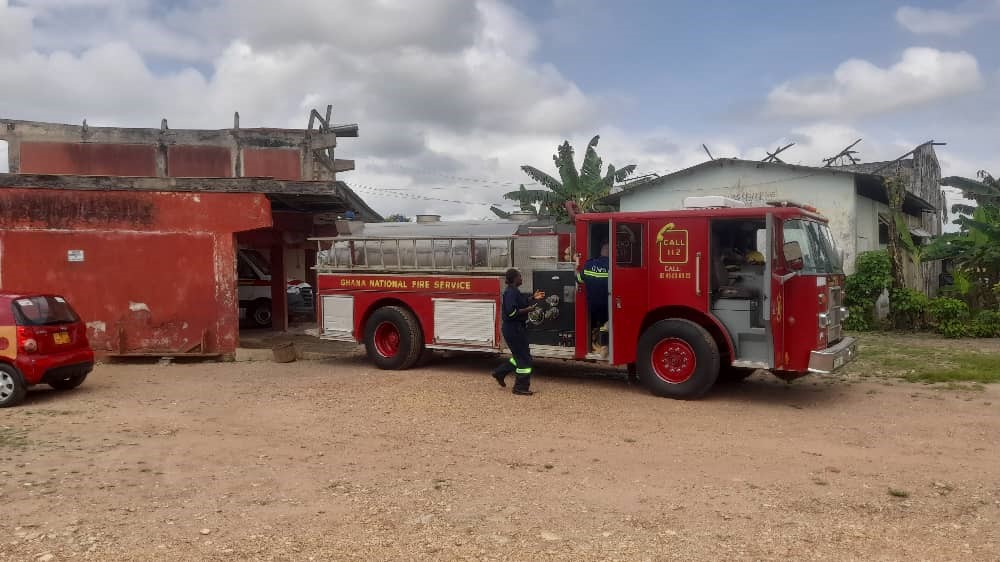
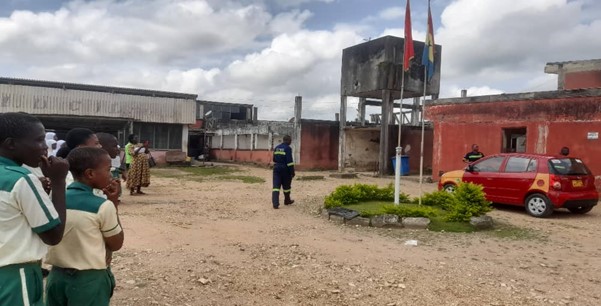
The firefighters demonstrating how they respond to calls of an outbreak under a minute
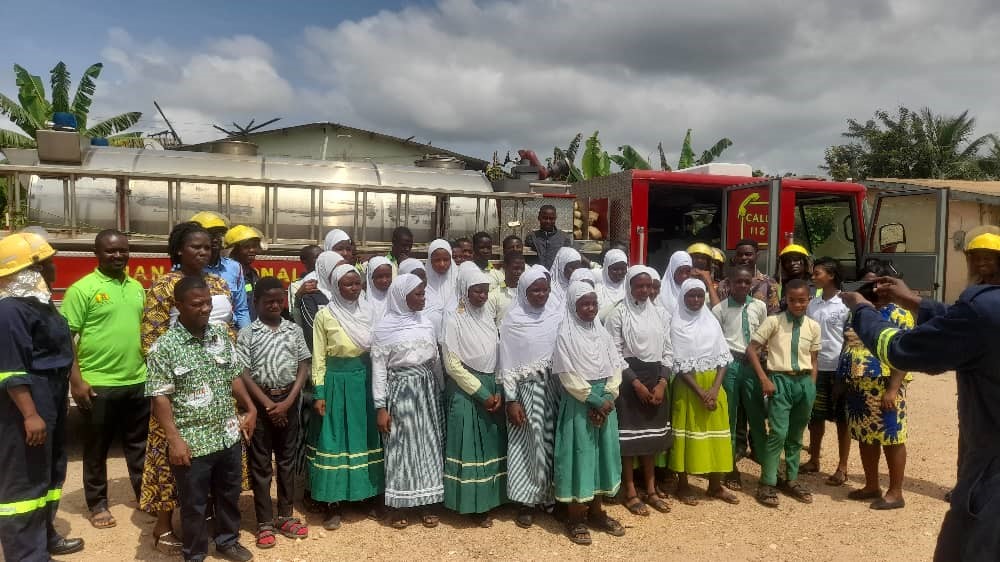
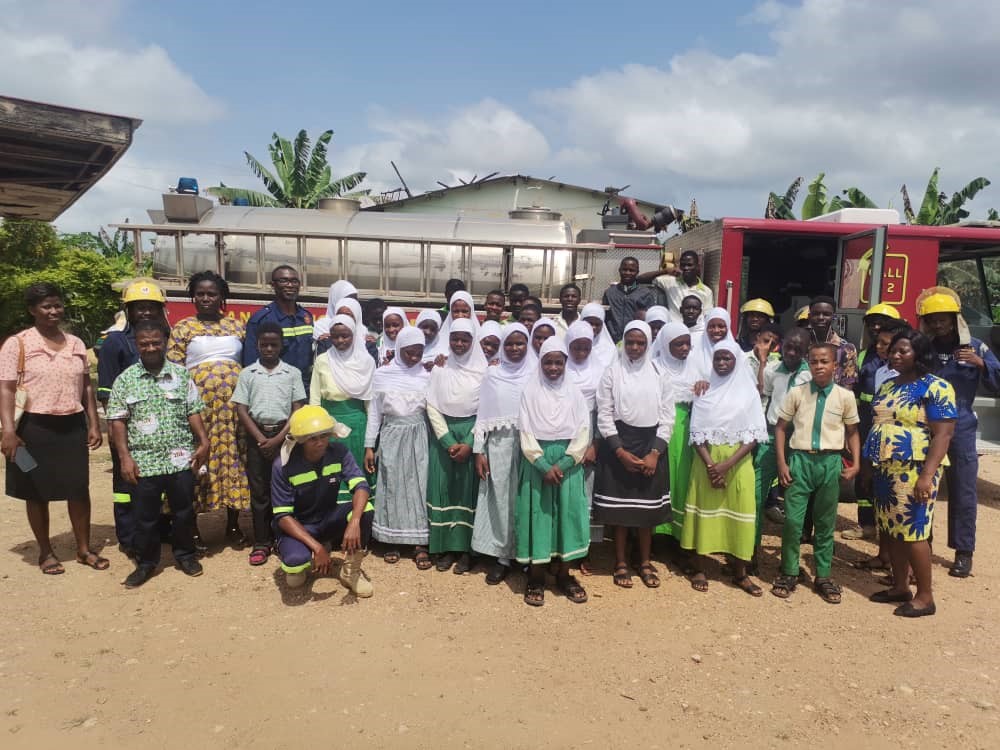
A cross-section of participants
_
Follow us on our social media pages for more stories and posts from the NCCE.
https://www.instagram.com/nccegh1/
https://www.facebook.com/nccegh/


Leave a comment